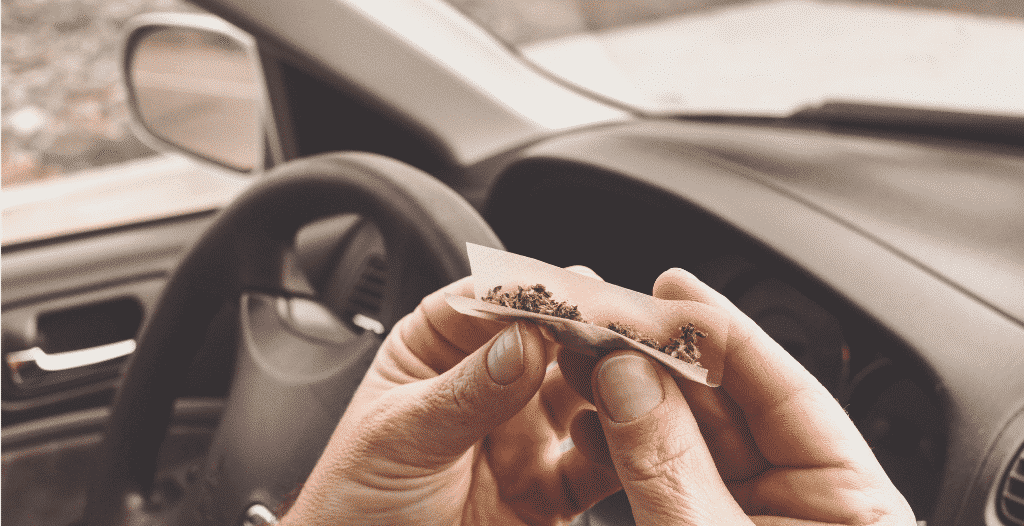How Can The Police Tell If Someone Is Driving High?

Ongoing changes to cannabis laws have made it easier for Colorado residents to purchase and consume marijuana. However, it is still illegal to drive while under the influence of cannabis. While Colorado has introduced a variety of measures to help officers identify impaired drivers, it is not always easy to determine whether a person is driving high. Below is a look at the processes police use to evaluate drivers and the steps you should follow if you are pulled over while driving high.
Why is it so difficult for police to tell if a person is driving high?
“76% of all DUID arrests by Colorado State Patrol involved marijuana. 767 of 1004 arrests. CSP Makes 20% of statewide DUI arrests.” – NHTSA, Chief Robert L. Ticer, Past President, Colorado Association of Chiefs of Police
Unlike the process to screen drivers suspected of driving under the influence of alcohol, there is not a universal process to determine if a person is driving while high. The lack of a breathalyzer test or universal field test makes it very difficult for officers to reliably determine if a person is driving high.
In recent years, Colorado introduced a specialized course of training to help law enforcement officials improve their ability to identify drivers who are high. Known as “Advanced Roadside Impaired Driving Enforcement” (ARIDE), the program features 72 hours of comprehensive education. Topics include a review of behavioral cues that suggest a driver is impaired and pre-arrest screening techniques.
Are there specific signs that officers look for when evaluating drivers?
Yes. While there is no surefire way to determine that a driver is high during a routine stop, Colorado’s law enforcement officials often look for certain behaviors or pieces of evidence that are often present among people who are driving while under the influence of marijuana. Here are some common signs that suggest a person might be driving high:
- Physical Evidence: Sometimes there are open containers of marijuana or other related products in the driver’s vehicle.
- Odors: Officers may notice an odor of marijuana that becomes noticeable when the driver rolls down their window.
- Bloodshot Eyes: People who have been using marijuana frequently have eyes that are red or watery.
- Failed Sobriety Tests: The driver may struggle to complete some or all of the steps in a field sobriety test.
- Sluggish Speech: Marijuana users often exhibit slowed speech and sometimes have difficulty following a conversation.
- Slowed Reaction Times: High drivers may drive too slowly or be slow to respond to changes in traffic patterns.
What should you do if you are pulled over while driving high?
Remain calm and comply with the officer’s instructions. If the officer asks you to take a breathalyzer or a field sobriety test, make sure you listen carefully to the instructions before you take the test. Try to keep your hands on the steering wheel so they are visible to the officer. If the officer asks you a question, respond clearly and politely.
If the officer asks you to take a chemical test, it’s best to comply and take the test. If you refuse to take a chemical test, you could be labeled a “high-risk driver,” which could cause your insurance premiums to increase and have a negative impact on future interactions with officers.
What should you avoid doing if you are pulled over in Colorado?
Sometimes, knowing what you shouldn’t do is just as vital as knowing what you should do if you are pulled over. Here are five things you should never do if you are pulled over while driving high in Colorado:
- Don’t get out of your car unless the officer tells you to exit your vehicle
- Don’t argue with the officer who pulls you over
- Don’t admit you are high, even if you have recently been using marijuana
- Don’t reach for your license or purse without telling the officer first
- Don’t refuse a breathalyzer test if one is offered to you. Marijuana does not show up on a breathalyzer.
The Bottom Line on Driving High
It’s not easy for police officers to tell if a driver is high – very different from officers trying to determine if you are drunk. To assess whether you might be driving high, experienced law enforcement may monitor your behavior, verbal communication, and appearance for signs of impairment. If the results of a chemical test show that you have more than five nanograms of active tetrahydrocannabinol (THC) in your blood, you could be subject to fines, jail time, and a blemish on your driving record similar to what someone who drives drunk might experience; however, the standards for determining high driving are much more lax than those used for drunk drivers. Therefore if you are charged with driving high you could have many more options to fight the charges than someone who is only charged with drunk driving.
The best thing to do if you are arrested for driving high is to reach out to an experienced marijuana DUI lawyer in Colorado. A skilled attorney will review the details of your case and take the necessary steps to help you avoid jail time and keep your driving record as clean as possible. With a trusted attorney fighting for your rights, you can boost your chances that your case will be resolved with the best possible outcome.
Reach out right away for a free case consultation.

